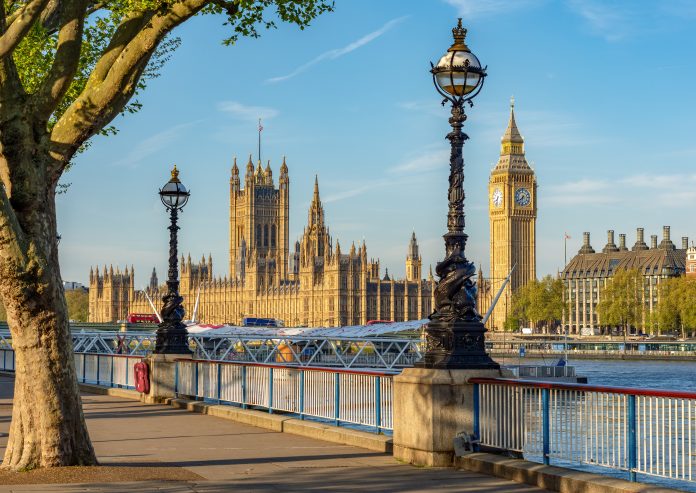As the Devolution Bill moves through parliament, UK charities are preparing for some dramatic changes and the potential benefits that civil society could gain from the proposed changes.
In this exclusive, leaders from the Mayor’s Fund for London and the Greater Manchester Mayor’s Charity will explore how these changes could create new opportunities and challenges
In a growing number of English regions, Mayors are now established as significant and influential political figures, taking the role of galvanising and leading economic and social renewal, in partnership with Local Authorities and civil society. The forthcoming Devolution Bill promises more Mayors, and more power for them, and for their regional and combined authorities if they work together. These changes could bring benefits for charities, including generating new resources.
Relationships between Mayors and the voluntary sector vary across regions, but it’s clear there’s value in strengthening dialogue and collaboration. London and Greater Manchester stand out as the only areas with formally established ‘Mayoral Charities’ – the Mayor’s Fund for London (MFL) and the Greater Manchester Mayor’s Charity (GMMC). Though their structures and work differ, both play a central role in how their respective Mayors engage with and support communities.
The Government hopes that more Mayors will increase the levers to tackle national priorities at a regional level – economic growth, poverty reduction strategies, preventing homelessness etc. Charities and Combined Authorities are now beginning to look at how they can benefit.
This includes the potential emergence of further ‘Mayor’s Charities’ in some areas, or other creative ways of collaborating: in the North East, In 2024, Mayor Kim McGuinness announced a £1m ‘Mayor’s Fund’ to tackle child poverty: though rather than setting up a new organisation, this has been channelled through existing regional infrastructure.
The rise of regional mayors as civic leaders
Suppose charities and Mayoral authorities are seeing that devolution may open opportunities for partnerships to tackle particular policy challenges in their regions better. In that case, the related question is whether Mayors could also drive philanthropy, and therefore increase the funds available in any area for social impact?
In an era of acute challenges for charities and pressure on traditional sources of funding, this is a valuable prize.
Mayors do have some assets in terms of philanthropy: they can tell compelling stories about their regions, with visibility and a good level of accountability to local people and businesses.
London and Manchester: The UK’s mayoral charity trailblazers
The experience in London and Manchester so far offers some cautious encouragement, as well as some learning.
The Greater Manchester Mayor’s Charity, with its clear focus on raising income to provide grants to organisations responding to homelessness and rough sleeping, can and does generate additional funds beyond what might come from other existing fundraising campaigns. This depends on the development of effective partnerships and collaborations, creative events, and campaigns to complement existing efforts in the city-region. While it has been a success, it has not yet led to the establishment of an endowment of a central social investment fund.
In London, the Mayor’s Fund for London was established in 2008 and has since navigated the transition between two very different Mayors with distinct approaches to the charity. In recent years, MFL has been more focused on partnership building, and using investment from The Mayor and others to generate additional matched or levered funding which can then be pushed down into London’s communities, with a significantly more positive impact as a result, including opening opportunities for almost 90,000 young people in 2024. Despite this progress, it is still not clear that the dial on philanthropy in the capital has shifted much.
So a shift in philanthropy in the regions isn’t necessarily guaranteed to come from greater Mayoral engagement, or indeed the establishment of a ‘Mayor’s Charity’ alone. Each Region and each Mayor will be different, for a start.
While the North East may be one of the UK’s strongest in terms of regional identity and local generosity, it remains a relatively poor region with fewer businesses headquartered there. Merseyside, South Yorkshire, and the South West or West Midlands may all have decent-sized populations of people and companies to draw from, but equally face challenges of significant inequalities and competition for funds.
Unlocking new funding streams
One potential window opened by the Devolution Bill is that it envisages Mayors working together in partnership across the country, and coming together to ask for new powers.
That could open the possibility of further funds coming down to the regions. If tranches of spending like Dormant Assets funding were to be distributed via the Mayoral infrastructure, that would be more beneficial to regional charities and community organisations.
A joint Mayoral campaign on giving could create a cohort of regional leaders who want to use their collective power to try and drive funding from beyond government, to invest in civic renewal.
A clear first ask from the Mayors, to take the Government at its word, could be for a pot of money made available explicitly for supporting charities and the regional voluntary sector, with a matched funding incentive, so that local funds can be raised and reinvested to tackle locally identified social challenges, with the backing of the regional Mayor.
Leaders within the charity sector may not immediately see where devolution can help them. But if we combine the power of the Mayors in stimulating a regionally driven push for wider philanthropy, we might see some real benefits.
We’re up for continuing the conversation.











